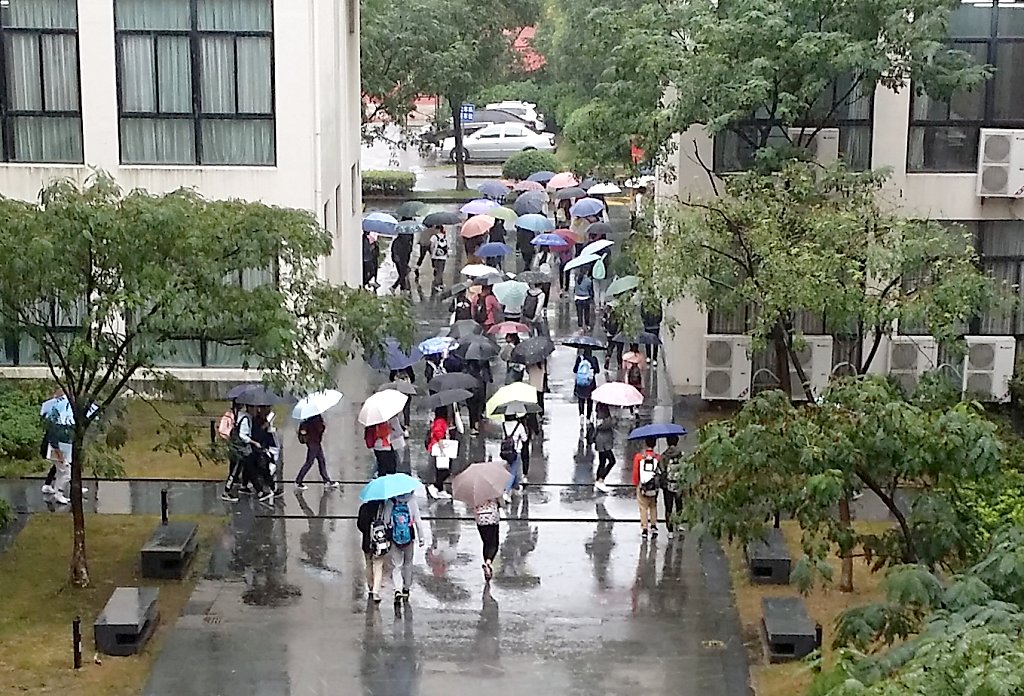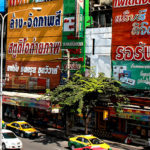Welcome to Thai Brides. On this site you’ll find loads of useful information about visiting and living in Thailand as well as meeting and dating Thai girls.
If you want to find a Thai bride then I highly recommend Thai Cupid. I averaged one date a week while I was using it when I lived in Bangkok. Sign up and check them out!
Got any questions about Thailand or Thai dating? Leave a comment below and I’ll do my best to answer you.
In this post I want to mull over the pros and cons of studying in Thailand.
This post was brought about by watching this guy rant about the Payap University TESOL MA being a waste of time and money:
It’s a really intelligent and thought provoking video.
His other post about daily life in Payap is also worth a look:
So is he right?
I’ve spent a lot of my life in academia. I have a doctorate from the University of Nottingham, and I’ve also studied in Spain, Thailand and China.
More recently, I’ve been searching for a study abroad programme that would allow me to live overseas for a year or two. I was interested in the Payap MA TESOL programme as it is affordable and also leads onto a career as an English teacher in Asia.
However, I just found out that the MA TESOL has been closed to admissions (again). I’m not sure if this is because of quality and standard issues, or whether the Thai authorities are concerned about immigration policies, or whether something else has been going on. It’s Thailand, so who knows…
Anyway, I have really been put off by this gentleman’s rants, and I’m pretty sure he is spot on with his observations.
One caveat I have is that studying in Asia is not like studying in farangland. Asian universities can have quite basic facilities. I studied in a Chinese university. Our classrooms had air conditioning, but the classrooms the home based Chinese used did not. We paid much higher fees though! Also the canteen food was indeed basic. They would basically chop up an entire animal and whatever bit you got in your bowl of noodles was entirely random. This is a world away from farangland where most farangs will only eat the breast of the chicken.
The student dorm buildings were also very basic, with most Asian students living 6 to a room.
Incidentally, Payap is a better bet if you want to do an MA in Linguistics. This is a good location to study SE Asian languages and I’ve heard better things about this course. However, Linguistics is somewhat different to teaching English as a foreign language. Linguistics requires much more of an academic mind, and it has less practical uses in the modern world.
The issue with studying at a Thai University however, is that there really are no top internationally recognised universities in the country. This is fine if you want to study for the purposes of getting a visa and living in Thailand. But if you want to pursue a career back home then your Thai degree certificate won’t be worth much at all. At best you’ll have some interesting anecdotes to talk about at a job interview. But that’s about it really.
Studying in Thai in Thailand
In 2013 I went and lived in Asia for a while. I started off in China, but it was too chaotic for words and it eventually drove me mad. In the heat of the tropical monsoon Summer I booked a two week R&R vacation to Thailand.
After 24 hours in Bangkok I kind of figured it was the best place ever, so I had a look around for a way of getting a visa that would allow me to stay for longer than 30 days.
My searches lead me down the Ed Visa route. I turned up at a language school in Asok called Prolanguage, and began the necessary paperwork to secure an Ed Visa. This would allow me to stay for 6 months or a year. In return I had to attend a couple of Thai language classes each week.
Actually that’s not quite true because there weren’t any requirements to actually attend the courses. I did go to 3 or 4 lessons but I didn’t like the teacher and to be honest I was all burned out of language learning after having spent 4 months learning intensive Mandarin in China.
I did learn a bit of Thai but I can’t say that is was that easy. To make matters worse for me, Thai and Chinese have annoyingly different grammatical constructs that swaps noun and verb word order.
As an introvert, I’m also not that into learning languages by speaking to people. That’s how extroverts learn languages. It’s not how me and my fellow introverts learn. I really hate speaking in class, especially if I’m not confident in the subject matter.
I actually prefer to learn languages by studying the written form. I was actually in my element learning Chinese, as all those characters kept me occupied for days. But the Thai written language is in my opinion way more complex than written Chinese. I actually personally only know three farangs who have mastered it.
Well this might all be academic because sadly the Thai authorities have cracked down on language schools, especially those who offer “lessons” but you don’t actually have to go to them. There’s also anecdotal evidence that language students who go to get their visas renewed are tested on their language knowledge, to see if they are actually attending classes. This is OK if you’re seriously interested in learning Thai. But if you just want the visa, then it’s just a load of hassle.
My Recommendations for Studying in Asia
It’s surprisingly hard to find good information about studying in Asia. If you search Google for an “MA in Asia” then you’ll normally find sites like Masterstudies. Although potentially useful, it’s actually pretty shit for finding good courses in Asia.
So these are my recommendations:
- If you want a Masters in TESOL, then check out Sofia University in Japan. Sure, the course is expensive but it is a good quality course. A huge advantage to studying in Japan is that you can work on a student visa there. English teachers (even trainees) are well paid in Japan. So if you crunch the figures you might actually find that it’s cheaper to study in Tokyo than it is in Thailand or China!
- If you just want to teach English for a year or two, then just get the CELTA. I did mine at International House in Barcelona. It’s a prestigious school in a beautiful city. However, since the CELTA is moderated by Cambridge University, then the qualification is exactly the same standard wherever you take it. If you have the time and money then I can highly recommend doing the course part-time. I did mine 2 days a week over 3.5 months which was just about manageable, whereas students would regularly burn out on the month long course.
- By all means go to a Thai language school and study Thai. I studied for a bit in Prolanguage in Bangkok. I also studied Mandarin Chinese in China. But this is the thing. My Chinese actually got vastly better once I enrolled in a couple of Mandarin courses back in the UK. I actually took passed my HSK 1 and HSK 2 certificate exams in London. If you want to find outstanding Asian language teachers, the place to look could be in a Western country. Not in Thailand or China!
- If you want to spend time studying in Asia, I can recommend China. It’s much cheaper than Hong Kong or Singapore, but there is a similarly good choice of courses. An increasing number of courses are taught in English. If you want to study Mandarin Chinese, then many universities offer courses for complete beginners onwards. It’s not too hard to get an education visa that will allow you to become a resident. Once you’re on the course you can spend as long as you like there, provided you pay the course fees and abide by the local laws. Over time you can advance to higher ability classes, and take HSK certifications if you want an actual qualification. I studied at Guangdong University of Foreign Studies. The teachers were enthusiastic and the classes were fun. I studied with students from Peru, Colombia, South Korea, the Middle East and Russia. The campus was also really picturesque, with long tree lined avenues and a frog chorus at night.
- Taiwan is off the radar, but it’s a great choice of place to study. Costs are low, and there’s a lot more culture and democracy than there is in mainland China.
- Malaysia is even further off the radar, but it does have some great options for studying. In particular I saw this data science and analytics course being offered by Asia Pacific University. It’s not particularly cheap, but once you’ve paid your course fee the cost of living is pretty low.
- If you just want to escape farangland and go and live in Asia for a while then it’s generally pretty easy to get long stay visas for Vietnam and the Philippines. A big shout out to the Philippines for making it particularly straightforward. Of course the downside is that if you’re interested in dating then Vietnamese and Filipino women are really quite different from Thai women.
So that’s my brain dump of everything I know about studying in Asia. Would you go and study in Thailand, or are there better options elsewhere in Asia?




